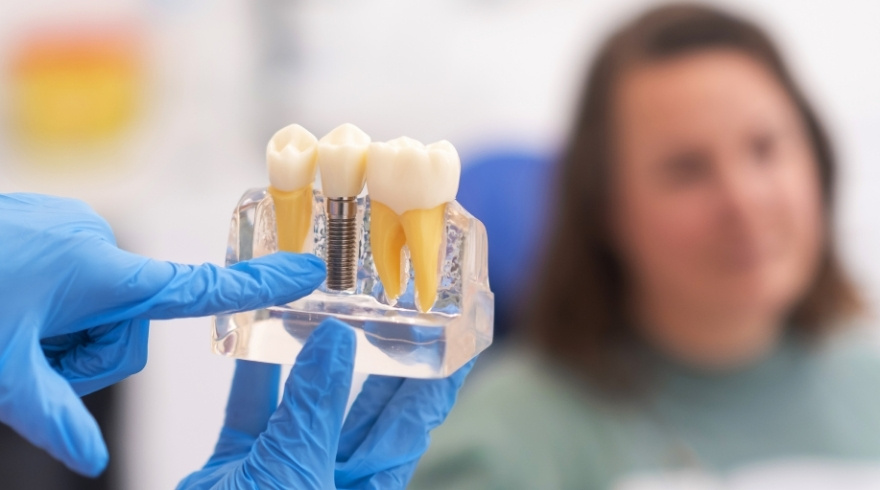Understanding Dental Implants: Your Essential Guide to Lifelong Smiles
- 29 August 2024

Dental implants have revolutionized the field of dentistry, offering a permanent solution for missing teeth. These artificial tooth roots provide a strong foundation for fixed or removable replacement teeth that are made to match your natural teeth.
How Do Dental Implants Work?
Dental implants are typically made of titanium and are surgically placed into the jawbone. Over time, the bone fuses with the implant in a process called osseointegration, creating a sturdy base for artificial teeth.
Types of Dental Implants
- Endosteal Implants: The most common type, surgically implanted directly into the jawbone.
- Subperiosteal Implants: Placed under the gum but on or above the jawbone, used for patients with insufficient bone height.
- Zygomatic Implants: A complex procedure where implants are placed in the cheekbone for those with insufficient jawbone.
The Dental Implant Process
- Initial Consultation: Your dentist will evaluate your oral health and determine if you're a good candidate for implants.
- Treatment Planning: A comprehensive plan is created, which may include extracting damaged teeth or bone grafting.
- Implant Placement: The titanium implant is surgically placed into the bone.
- Healing and Osseointegration: This process typically takes several months.
- Abutment Placement: Once healed, an abutment is attached to the implant.
- Crown Attachment: Finally, a custom-made crown is attached to the abutment.
Benefits of Dental Implants
| Benefit | Description |
|---|---|
| Improved Appearance | Implants look and feel like your own teeth |
| Enhanced Speech | No slipping of dentures that can cause mumbling or slurred speech |
| Comfort | Eliminate discomfort of removable dentures |
| Easier Eating | Function like your own teeth, allowing you to eat your favorite foods |
| Improved Oral Health | Don't require reducing other teeth, as a tooth-supported bridge does |
| Durability | Very durable and can last many years, even a lifetime with proper care |
Caring for Your Dental Implants
Dental implants require the same care as your natural teeth. This includes:
- Brushing twice a day
- Flossing daily
- Rinsing with an antibacterial mouthwash
- Regular dental check-ups
Are Dental Implants Right for You?
While dental implants have a high success rate, they're not suitable for everyone. Ideal candidates should have:
- Healthy gums
- Adequate bone to secure the implants
- Good overall health
- Commitment to good oral hygiene
The Cost of Dental Implants
The cost of dental implants can vary widely based on factors such as the number of teeth being replaced and the need for additional procedures like bone grafts. While they may seem expensive initially, their durability and functionality often make them a cost-effective solution in the long run.
Financing Options
Many dental offices offer financing options to help make implants more affordable. These may include:
- In-house payment plans
- Third-party financing
- Dental insurance (though coverage varies)
Conclusion
Dental implants offer a revolutionary solution for missing teeth, providing a permanent, natural-looking replacement that can significantly improve your quality of life. While the process requires time and investment, the long-term benefits often outweigh the initial costs. If you're considering dental implants, consult with a qualified dental professional to determine if they're the right choice for your unique situation.



